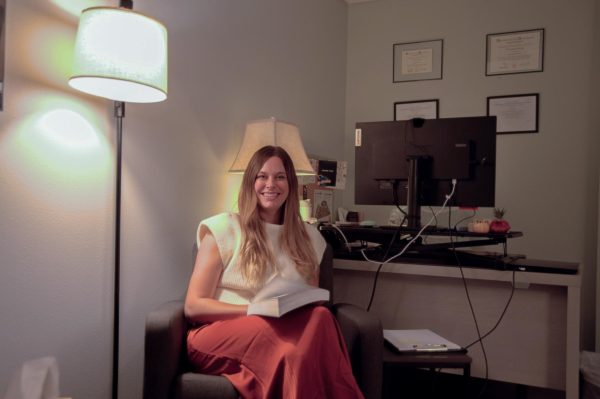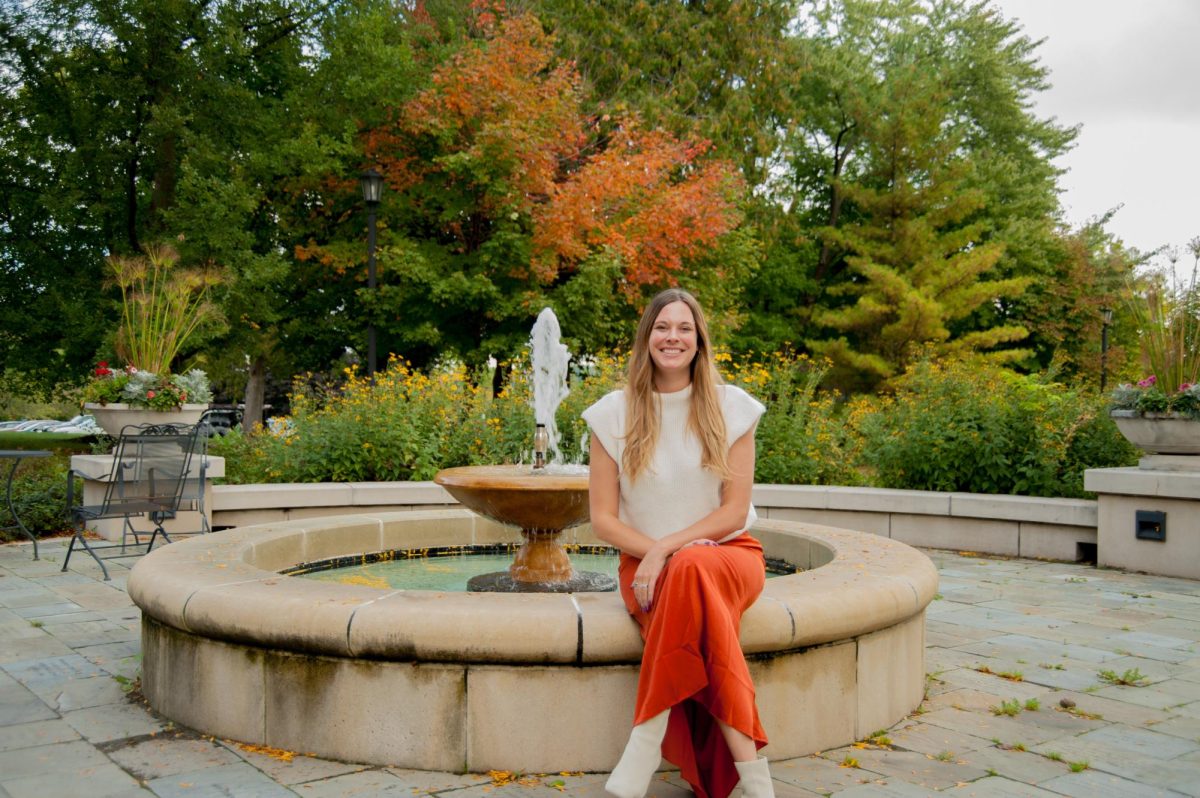School, sports and daily life don’t mix together easily, and no one knows that better than Lakeland’s new counselor, Staci Haley. A former college athlete turned counselor, Haley started this fall with a mission: to break the stigma of mental health services and get students balanced and resilient.
Haley, both a licensed professional counselor and clinical substance abuse counselor, contributes professional education and life experience to Lakeland. She began the journey of counseling at University of Wisconsin-Whitewater, when she knew she wanted to do counseling helping people by listening and being an ally. She graduated with a Master of Counseling degree with specializations in trauma and substance abuse, finished an internship at Rock County Jail and then held a position on the inpatient behavioral health unit in Sheboygan, Wis.
“I chose Lakeland because I witness firsthand how many young adults need mental health treatment at this stage in life,” Haley said. “I’d like to be that person here, as well as Alex, and keep breaking the stigma still surrounding seeking help.”

Her athletic background makes her identify with student-athletes. Haley knows the pressure to perform and the emotional toll of relentless time demands. “Being an athlete is among the most powerful things that I learned, not physical power, but emotional and mental,” she said. She wants to remind athletes that “You are not an athlete. You are human, and your life, stress, joy and emotions also need to be cared for.”
Lakeland Football Head Coach Colin Bruton reiterated the importance of mental health for today’s athletes. “I think that students in general are more aware of their mental health in the past couple of years and much more willing to talk about it or seek help,” Bruton said. “I think there are more stresses on students than there ever have been. Student-athletes are balancing class, practice, work, injury, relationships, family and dynamics.”
He added that coaching itself has had to evolve to accommodate these needs. “I think that as coaches, we’ve had to adjust to the demands of our players. I think players need more positivity and support and don’t respond to negative coaching. It is difficult to build chemistry and be successful as a unit if your players are not happy.”
In recent years, coaches have reduced practice times, increased recovery time, and decreased the offseason workouts from four a week to three.
Haley also emphasizes the importance of balance. Her advice to athletes, and to students in general, is to prioritize time to reset: “Find time to just be; leave early for class or practice and walk slowly, be present with your surroundings. Make time with your friends without phones or distractions. We’ve lost touch with the benefits of being fully present, but it makes a difference.”
Her counseling is not exclusive to athletes. Haley invites all her students to feel comfortable coming, no matter what they are going through. “I hope students leave our sessions feeling supported and safe. Even if they only come once, I want them to know that counseling is a safe space where they’ll be heard, not judged.”
When asked why the mental had to be treated with as much respect as the physical, Haley referenced the interrelated nature of the two. Stress, depression and anxiety all manifest physically, either in headaches, appetite changes or muscles tightening. Injuries also reach the mind, most especially to players who are taken off their team. “There’s no way to take one seriously without the other,” Haley said. “I hope for a day when going into a counseling center is as normal as going into urgent care with a broken arm.”
To Haley, advising is less of an issue of solving problems and more about enabling students to see the big picture. “It wasn’t that long ago that I was where you are,” she explained, “but I’ve also lived post-college and learned to frame life differently. I hope to be able to help students not just with their immediate problem, but with being ready for what’s next.”
Haley’s presence at Lakeland provides students with yet another person to go to when they are stressed or unsure. And for her, it is also about informing students it is okay to seek help, that it is not a sign of weakness, but of strength.

To reach out to Haley and Lakeland’s counseling center, email Haley at [email protected] or the counseling center at [email protected]. Haley’s office hours are Mondays-Thursdays: 8 a.m.- 5 p.m. and on Fridays: 8 a.m. – 12 p.m. on Fridays.


